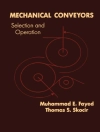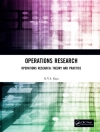This new Handbook provides a series of reference guides to cleaner production methods, technologies, and practices for key industry sectors. Each volume covers, for each industry sector: * the manufacturing technologies * waste management * pollution * methods for estimating and reporting emissions * treatment and control technologies * worker and community health risk exposures * cost data for pollution management * cleaner production and prevention alternatives Best Practices in The Petroleum Industry provides an overview of refineries and gas plant operations and identifies the key Environmental Aspects, supported by case studies of major incidents that resulted in catastrophic releases of oil and refined products, and a critical assessment of the methodology and calculation procedures that the industry relies on in preparing emissions inventories. The authors offer alternative approaches to providing more accurate emissions estimates, and guidelines on cleaner production and pollution prevention practices for improving overall environmental performance. — Overview of the key Environmental Aspects of gas plant operations and refineries- Case studies of major incidents that resulted in catastrophic releases of oil and refined products, including the Santa Barbara oil spill of 1969 and the EXXON Valdez incident- Provides guidelines on cleaner production and pollution prevention practices for improving overall environmental performance
Nicholas P Cheremisinoff & Paul E. Rosenfeld
Handbook of Pollution Prevention and Cleaner Production Vol. 1: Best Practices in the Petroleum Industry [EPUB ebook]
Handbook of Pollution Prevention and Cleaner Production Vol. 1: Best Practices in the Petroleum Industry [EPUB ebook]
Купите эту электронную книгу и получите еще одну БЕСПЛАТНО!
язык английский ● Формат EPUB ● ISBN 9780815520368 ● издатель Elsevier Science ● опубликованный 2009 ● Загружаемые 6 раз ● валюта EUR ● Код товара 2638058 ● Защита от копирования Adobe DRM
Требуется устройство для чтения электронных книг с поддержкой DRM












